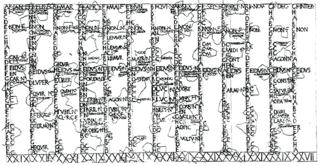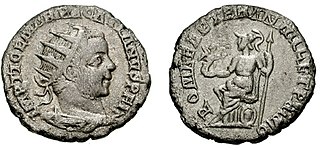
The Peloponnesian War was an ancient Greek war fought by the Delian League led by Athens against the Peloponnesian League led by Sparta. Historians have traditionally divided the war into three phases. In the first phase, the Archidamian War, Sparta launched repeated invasions of Attica, while Athens took advantage of its naval supremacy to raid the coast of the Peloponnese and attempt to suppress signs of unrest in its empire. This period of the war was concluded in 421 BC, with the signing of the Peace of Nicias. That treaty, however, was soon undermined by renewed fighting in the Peloponnese. In 415 BC, Athens dispatched a massive expeditionary force to attack Syracuse, Sicily; the attack failed disastrously, with the destruction of the entire force in 413 BC. This ushered in the final phase of the war, generally referred to either as the Decelean War, or the Ionian War. In this phase, Sparta, now receiving support from the Achaemenid Empire, supported rebellions in Athens's subject states in the Aegean Sea and Ionia, undermining Athens's empire, and, eventually, depriving the city of naval supremacy. The destruction of Athens's fleet in the Battle of Aegospotami effectively ended the war, and Athens surrendered in the following year. Corinth and Thebes demanded that Athens should be destroyed and all its citizens should be enslaved, but Sparta refused.

The 5th century BC started the first day of 500 BC and ended the last day of 401 BC.
Year 431 BC was a year of the pre-Julian Roman calendar. At the time, it was known as the Year of the Consulship of Cincinnatus and Mento. The denomination 431 BC for this year has been used since the early medieval period, when the Anno Domini calendar era became the prevalent method in Europe for naming years.
This article concerns the period 439 BC – 430 BC.
This article concerns the period 429 BC – 420 BC.
This decade witnessed the continuing decline of the Achaemenid Empire, fierce warfare amongst the Greek city-states during the Peloponnesian War, the ongoing Warring States period in Zhou dynasty China, and the closing years of the Olmec civilization in modern-day Mexico.

This is a timeline of Ancient Greece from its emergence around 800 BC to its subjection to the Roman Empire in 146 BC.

Lysander was a Spartan admiral who commanded the Spartan fleet in the Hellespont which defeated the Athenians at Aegospotami in 405 BC. The following year, he was able to force the Athenians to capitulate, bringing the Peloponnesian War to an end. He then played a key role in Sparta's domination of Greece for the next decade until his death at the Battle of Haliartus.
Year 425 BC was a year of the pre-Julian Roman calendar. At the time, it was known as the Year of the Tribunate of Atratinus, Medullinus, Cincinnatus and Barbatus. The denomination 425 BC for this year has been used since the early medieval period, when the Anno Domini calendar era became the prevalent method in Europe for naming years.
Year 418 BC was a year of the pre-Julian Roman calendar. At the time, it was known as the Year of the Tribunate of Fidenas, Axilla and Mugillanus. The denomination 418 BC for this year has been used since the early medieval period, when the Anno Domini calendar era became the prevalent method in Europe for naming years.
The Peace of Nicias, also known as the Fifty-Year Peace, was a peace treaty signed between the Greek city-states of Athens and Sparta in March 421 BC, ending the first half of the Peloponnesian War.

Plataea or Plataeae was an ancient city, located in Greece in southeastern Boeotia, south of Thebes. It was the location of the Battle of Plataea in 479 BC, in which an alliance of Greek city-states defeated the Persians.

Nicias, was an Athenian politician and general during the period of the Peloponnesian War. Nicias was a member of the Athenian aristocracy and had inherited a large fortune from his father, which was invested in the silver mines around Attica's Mt. Laurium. Following the death of Pericles in 429 BC, he became the principal rival of Cleon and the democrats in the struggle for the political leadership of the Athenian state. He was a moderate in his political views and opposed the aggressive imperialism of the democrats. His principal aim was to conclude a peace with Sparta as soon as it could be obtained on terms favourable to Athens.
Kleon was an Athenian general during the Peloponnesian War. He was the first prominent representative of the commercial class in Athenian politics, although he was an aristocrat himself. His contemporaries, the historian Thucydides and the comedic playwright Aristophanes, both represent him as an unscrupulous, warmongering demagogue, but both of them had strong motives to present Cleon unfavorably.

The History of the Peloponnesian War is a historical account of the Peloponnesian War, which was fought between the Peloponnesian League and the Delian League. It was written by Thucydides, an Athenian historian who also happened to serve as an Athenian general during the war. His account of the conflict is widely considered to be a classic and regarded as one of the earliest scholarly works of history. The History is divided into eight books.
The Battle of Megara was fought in 424 BC between Athens and Megara, an ally of Sparta. The Athenians were victorious.
The Second Athenian League was a maritime confederation of Aegean city-states from 378–355 BC and headed by Athens, primarily for self-defense against the growth of Sparta and secondly, the Persian Empire.
The Mytilenean revolt was an incident in the Peloponnesian War in which the city of Mytilene attempted to unify the island of Lesbos under its control and revolt from the Athenian Empire. In 428 BC, the Mytilenean government planned a rebellion in concert with Sparta, Boeotia, and certain other cities on the island, and began preparing to revolt by fortifying the city and laying in supplies for a prolonged war. These preparations were interrupted by the Athenian fleet, which had been notified of the plot, and the Mytileneans sent representatives to Athens to discuss a settlement, but simultaneously dispatched a secret embassy to Sparta to request support.

Classical Greece was a period of around 200 years in Greek culture. This Classical period saw the annexation of much of modern-day Greece by the Persian Empire and its subsequent independence. Classical Greece had a powerful influence on the Roman Empire and on the foundations of Western civilization. Much of modern Western politics, artistic thought, scientific thought, theatre, literature, and philosophy derives from this period of Greek history. In the context of the art, architecture, and culture of Ancient Greece, the Classical period corresponds to most of the 5th and 4th centuries BC. The Classical period in this sense follows the Greek Dark Ages and Archaic period and is in turn succeeded by the Hellenistic period.











